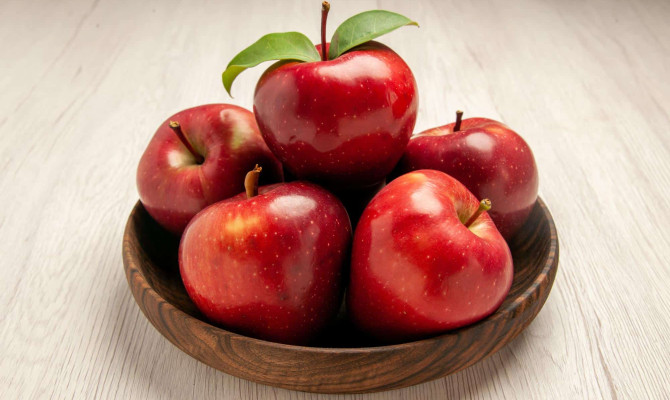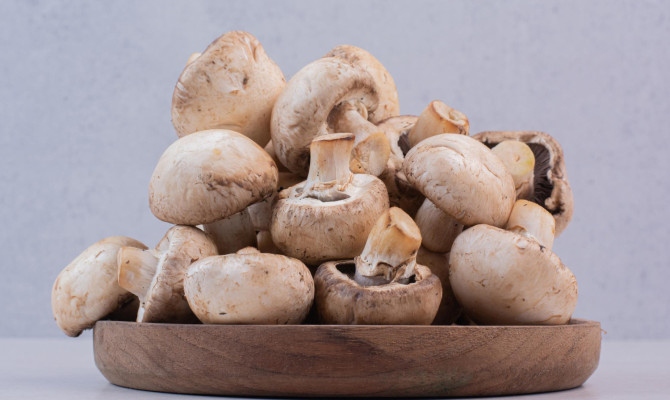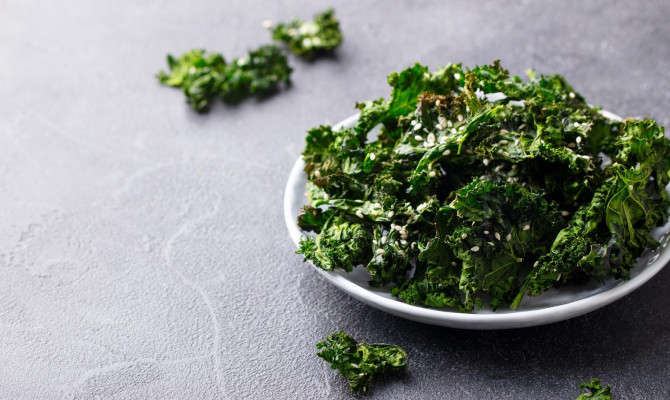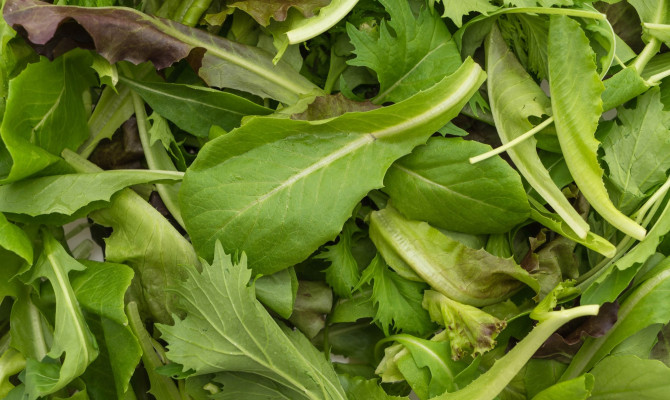Health benefits of Amaranth

- Amaranth
- 16 Aug 2023
Overview
What is Amaranth?
Amaranth is a group of sixty different species of grains cultivated from ancient times. The grains are gluten-free and rich in fiber, protein, and micronutrients. The grains have a nutty, sweet flavor that works well for various dishes.

Key facts of Amaranth
- Amaranth is an herbaceous shrub that is either annual or perennial across the genus.
- Some amaranth species are also cultivated for their leafy vegetables or to be used as ornamental plants.
- Amaranth is an indigenous plant of Central America and Mexico
- Although called grains, Amaranth is grown for its edible seeds and not grains.
- Amaranth is called ‘pseudocereal’ as it is used like a grain and is considered a whole grain due to its nutritional value. Moreover, it is not in the same botanical family as true cereals.
- It first originated in Peru, but now it is available worldwide
- It is a traditional breakfast cereal in India, Nepal, and Mexico
- Amaranth, in recent times, is considered a superfood due to its multiple health benefits 1Overview| Researched based study from Nlm.nih.gov
Nutritional value
Nutritional values of Amaranth
One cup (246 grams) of cooked Amaranth consists of the following
- Carbohydrate-46 gms (grams)
- Protein-9.3 gms
- Fats-5.2 gms
- Magnesium-40% of RDI(recommended daily intake)
- Manganese-105% of RDI
- Iron-29% of RDI
- Phosphorus-36% of RDI
- Copper-18% of RDI
- Selenium-19% of RDI
Apart from these, it also contains several other micronutrients 2Nutritional value| Researched based study from Sciencedirect.com
Health benefits

Health benefits of Amaranth
The health benefits of Amaranth consist of the following:
- Helping in growth and development
- Acting as an antioxidant
- Good for celiac disease
- Helps in decreasing inflammation
- Helps in reducing body weight
- Helps in reducing the body’s cholesterol
Helps in growth and development
- Amaranth contains the essential amino acid lysine in much more significant quantities than other grains.
- Lysine is needed for the body for proper growth and development. Amino acids are the construction blocks of proteins.
Act as an Antioxidant
- Amaranth grains are rich in antioxidants.
- Antioxidants are compounds that nullify the free radicals in our body. The free radicals in the body contribute to our cell aging and cell destruction that, ultimately, leads to chronic diseases
- Amaranth contains phenolic acids such as gallic acid and, para-hydroxybenzoic acid, vanillic acid that can help protect against cancer and heart diseases
- Phenolic acids are plant compounds having antioxidant properties 1Health benefits| Researched based study from Nlm.nih.gov
Good for celiac disease
- People with celiac disease must go for gluten-free products as consuming gluten might damage the digestive tract in such individuals. People with gluten allergy might experience stomach gas, stomach pain, and diarrhea
- Amaranth is a good alternative for those with celiac disease and gluten allergy 5Health benefits| Researched based study from Nlm.nih.gov
Decreases inflammation
- Inflammation is a normal process against the body’s injury and infection.
- Persistent inflammation can lead to chronic diseases such as diabetes and cancer.
- Amaranth reduces the inflammatory markers in the body.
- It also obstructs immunoglobulin E production in an animal study. 3Health benefits| Researched based study from Nlm.nih.gov
However, more research is warranted to prove the effect of Amaranth on inflammation
Helps with weight loss
- Amaranth is rich in fibers and proteins. Both play a crucial role in the weight loss process.
- Amaranth moves through the gut(gastrointestinal tract) undigested and reduces hunger and gives the feeling of fullness
- It decreases the levels of ghrelin hormone responsible for stimulating hunger 4Health benefits| Researched based study from Nlm.nih.gov
However, further research is much needed to prove the effectiveness of Amaranth in weight and calorie loss
Reduces cholesterol
- Cholesterol is a fatty substance in our bodies. Too much cholesterol in the body may lead to the narrowing of the arteries.
- In several animal studies, Amaranth showed cholesterol lowering in the body6Health benefits| Researched based study from Nlm.nih.gov
However, additional research is required to find the effect of Amaranth on cholesterol levels in humans.
Some other benefits of Amaranth are as follows
Improves digestive health
- Amaranth improves the digestion
- It prevents constipation 7Health benefits| Researched based study from Nlm.nih.gov
Improves the heart health
- Potassium in Amaranth lowers the blood cholesterol
- It lowers the blood pressure
- It reduces the risk of heart diseases 8Health benefits| Researched based study from Nlm.nih.gov
Prevents anemia
- Amaranth contains iron and thus helps maintain the iron level in the body and prevent anemia9Health benefits| Researched based study from Plos.org
Improves bone and teeth health
- Amaranth contains calcium and vitamin K
- It helps maintain healthy bones and teeth 10Health benefits| Researched based study from Nlm.nih.gov
Maintains healthy skin
- Amaranth oil soothes the skin
- It prevents skin irritation and keeps the skin hydrated 11Health benefits| Researched based study from Nlm.nih.gov
Dosage
Dosage of Amaranth
- The dosage of Amaranth depends on the person’s age and medical condition. To date, there needs to be more information on the dosage range for Amaranth.
- One must follow the directions as mentioned on the product label
- Persons with a medical condition must talk to a healthcare professional before using Amaranth to get the correct dose.
Side effects
Side effects of Amaranth
Amaranth has no known toxicity to date. Amaranth’s seed, oil, and leaves are generally safe when used as food.
However, some people might experience common side effects such as:
- Diarrhea
- Stomach pain
- Skin rash
- Itching
- Hives 12Side effects| Researched based study from Sciencedirect.com
Precautions
Precautions related to Amaranth
- Children, pregnant women, and nursing mothers should refrain from using Amaranth due to a lack of information on the safety and efficiency of these groups 13Precautions| Researched based study from Sciencedirect.com
Interactions
- To date, there is lack of available information on the interaction of Amaranth with other drugs.
How to eat Amaranth raw or cooked?
- Amaranth must never be consumed in raw form. Amaranth contains anti-nutrients such as phytates and oxalates that might bind to minerals and vitamins, thus decreasing their bioavailability.
How to prepare Amaranth?
- Cooking Amaranth is very simple and easy.
- Before cooking, one must soak Amaranth in water for one to three days or until sprouting occurs. Sprouting of grains is helpful in two ways-
- Sprouting helps in grain’s easy digestion in our body
- It also removes any harmful substances that hamper mineral absorption 14Precautions| Researched based study from Sciencedirect.com
Tips
Easy tips to include Amaranth in the diet
- One can use it in dishes instead of rice and paste
- Add in stews and soup to increase the thickness
- Take it as a breakfast cereal with nuts and fru
- Add it to smoothies to enhance the protein and fiber content
- One can also pop the amaranth seeds as popcorn and have them as snacks
Storage
Storage of Amaranth
- One can keep amaranth leaves in the freeze in a plastic bag
- Consume it within seven days to get the best benefit
- Avoid washing them until ready to cook
- One must keep the seeds of Amaranth in an airtight package to avoid microbial contamination.
Takeaway
Key Takeaways
- Amaranth is a healthy gluten-free grain with abundant proteins and fibers
- It has several health benefits, such as weight loss and reduced cholesterol levels in the body
- Amaranth is easy to prepare, and one can also consume it as snacks
- One must always consult a physician before consuming Amaranth as a medicine
Any feedback on this article?
 This Articles content was accurate
This Articles content was accurate Very Informative Article
Very Informative Article I have a question or a comment
I have a question or a comment
 This article contains inaccurate content
This article contains inaccurate content This article was not helpful
This article was not helpful I have a question or a comment
I have a question or a comment
We appreciate your helpful feedback!
Checkout our social pages
References
-
National Library of Medicine
State of knowledge on amaranth grain: a comprehensive review | Overview | Benefits
-
Science Direct
The nutritional value and yields of amaranth (Amaranthus hypochondriacus) cultivar silages compared to silage from corn (Zea mays) harvested at the milk stage grown in a hot-humid climate | Nutritional values
-
National Library of Medicine
Extrusion improved the anti-inflammatory effect of amaranth (Amaranthus hypochondriacus) hydrolysates in LPS-induced human THP-1 macrophage-like and mouse RAW 264.7 macrophages by preventing activation of NF-κB signaling | Benefits
-
National Library of Medicine
Increasing total fiber intake reduces risk of weight and fat gains in women | Benefits
-
National Library of Medicine
Non-celiac gluten sensitivity: literature review | Benefits
-
National Library of Medicine
Cholesterol-lowering properties of amaranth grain and oil in hamsters | Benefits
-
National Library of Medicine
Amaranth peptides from simulated gastrointestinal digestion: antioxidant activity against reactive species | Benefits
-
National Library of Medicine
Amaranth oil application for coronary heart disease and hypertension | Benefits
-
PLOS ONE
Efficacy of processed amaranth-containing bread compared to maize bread on hemoglobin, anemia and iron deficiency anemia prevalence among two-to-five year-old anemic children in Southern Ethiopia: A cluster randomized controlled trial | Benefits
-
National Library of Medicine
Amaranthus mangostanus Inhibits the Differentiation of Osteoclasts and Prevents Ovariectomy-Induced Bone Loss | Benefits
-
National Library of Medicine
The Dual Nature of Amaranth—Functional Food and Potential Medicine | Benefits
-
Science Direct
Rediscovering the therapeutic potential of Amaranthus species: A review | Side effects
-
Science Direct
Amaranth (Amaranthus hypochondriacus) as an alternative crop for sustainable food production: Phenolic acids and flavonoids with potential impact on its nutraceutical quality | Precautions
-
Science Direct
Amaranth Grain - an overview | Preperations






































